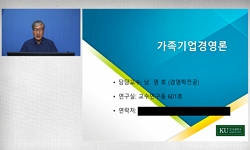본 연구의 목적은 기업의 DEI(Diversity, Equity, Inclusion) 정책이 직무만족에 미치는 영향을 실증적으로 규명하는 것이다. 특히 저출산·고령화에 따른 인구구조 변화와 외국인 인력 증가라는 국�...
http://chineseinput.net/에서 pinyin(병음)방식으로 중국어를 변환할 수 있습니다.
변환된 중국어를 복사하여 사용하시면 됩니다.
- 中文 을 입력하시려면 zhongwen을 입력하시고 space를누르시면됩니다.
- 北京 을 입력하시려면 beijing을 입력하시고 space를 누르시면 됩니다.
https://www.riss.kr/link?id=A109747522
- 저자
- 발행기관
- 학술지명
- 권호사항
-
발행연도
2025
-
작성언어
Korean
- 주제어
-
등재정보
KCI등재
-
자료형태
학술저널
- 발행기관 URL
-
수록면
923-952(30쪽)
- 제공처
-
0
상세조회 -
0
다운로드
부가정보
국문 초록 (Abstract)
연구 결과, DEI 정책은 고용브랜드와 조직충성도, 그리고 직무만족에 정(+)의 영향을 미치는 것으로 나타났다.
또한, 고용브랜드는 직무만족에 정(+)의 영향을 미치는 것으로 검증되었고, 조직충성도 또한 직무만족에 긍정적인 영향을 미치는 것으로 확인되었다. 아울러, DEI 정책이 직무만족에 미치는 영향은 고용브랜드와 조직충성도를 통해 간접적으로도 유의미한 영향을 미치는 것으로 나타났다.
이 연구는 글로벌 경영 환경에서 인적자원관리의 중요성이 증대되는 상황이기에 조직구성원의 직무만족 향상을 위해서는 효과적인 DEI 정책의 수립 및 실행과 함께 고용브랜드 강화와 조직충성도 제고를 위한 전략적 접근이 필요함을 시사한다. 따라서 기업은 DEI 정책을 단순한 제도적 차원이 아닌 조직문화의 핵심 요소로 정착시키고, 세대 간 특성과 다문화 인력을 고려한 HR 프로그램을 구축하여 직무만족과 조직 성과를 극대화할 수 있도록 실천적 노력을 기울여야 할 것이다. 특히 지속가능경영 관점에서 DEI 정책의 체계적 측정과 개선 프로세스 구축은 HR 서비스의 차별화와 기업 경쟁력 강화에 기여할 것으로 기대된다.
본 연구의 목적은 기업의 DEI(Diversity, Equity, Inclusion) 정책이 직무만족에 미치는 영향을 실증적으로 규명하는 것이다. 특히 저출산·고령화에 따른 인구구조 변화와 외국인 인력 증가라는 국내 사회적 맥락과 글로벌ESG 경영 패러다임이 강조되는 현시점에서, 본 연구는 DEI 정책과 직무만족 간의 관계에서 고용브랜드와조직충성도가 갖는 매개효과를 검증하고자 하였다. 연구 과정으로는 국내 기업에 근무하는 직장인 277명을 대상으로 설문조사를 실시하였으며, 수집된 자료의 신뢰성과 타당성을 검증한 후 구조방정식 모형과 부트스트랩 방식을 활용하여 가설 검증을 진행하였다.
연구 결과, DEI 정책은 고용브랜드와 조직충성도, 그리고 직무만족에 정(+)의 영향을 미치는 것으로 나타났다.
또한, 고용브랜드는 직무만족에 정(+)의 영향을 미치는 것으로 검증되었고, 조직충성도 또한 직무만족에 긍정적인 영향을 미치는 것으로 확인되었다. 아울러, DEI 정책이 직무만족에 미치는 영향은 고용브랜드와 조직충성도를 통해 간접적으로도 유의미한 영향을 미치는 것으로 나타났다.
이 연구는 글로벌 경영 환경에서 인적자원관리의 중요성이 증대되는 상황이기에 조직구성원의 직무만족 향상을 위해서는 효과적인 DEI 정책의 수립 및 실행과 함께 고용브랜드 강화와 조직충성도 제고를 위한 전략적 접근이 필요함을 시사한다. 따라서 기업은 DEI 정책을 단순한 제도적 차원이 아닌 조직문화의 핵심 요소로 정착시키고, 세대 간 특성과 다문화 인력을 고려한 HR 프로그램을 구축하여 직무만족과 조직 성과를 극대화할 수 있도록 실천적 노력을 기울여야 할 것이다. 특히 지속가능경영 관점에서 DEI 정책의 체계적 측정과 개선 프로세스 구축은 HR 서비스의 차별화와 기업 경쟁력 강화에 기여할 것으로 기대된다.
다국어 초록 (Multilingual Abstract)
The study surveyed 277 full-time employees from large South Korean corporations, analyzing the data through SPSS and Process Macro. The findings revealed several significant insights. DEI policies demonstrated a positive impact on employee job satisfaction, indicating that such policies enhance organiza tional fairness and inclusivity, thereby promoting psychological safety and job satisfaction. Furthermore, employer branding mediated the relationship between DEI policies and job satisfaction, suggesting that companies implementing DEI policies effectively build not only a positive external reputation but also foster employee pride, leading to increased job satisfaction. Organizational loyalty also emerged as a mediator, with stronger DEI policies fostering greater alignment between employee and organizational values, thereby enhancing emotional attachment and job satisfaction. Additionally, the study confirmed the multiple mediation effects of employer branding and organizational loyalty, demonstrating how DEI policies simultaneously enhance brand value and employee loyalty to maximize job satisfaction.
This research advances the literature by providing a more nuanced understanding of how DEI policies interact with organizational factors to influence employee outcomes, moving beyond traditional examinations of policy effectiveness. By validating a multiple mediation model linking DEI policies to job satisfaction through employer branding and organizational loyalty, the study identifies critical considerations for organizations implementing DEI initiatives. From a practical standpoint, the findings suggest that organizations should implement DEI policies strategically rather than merely adopting them as formal statements, ensuring employees can experience their tangible benefits. Moreover, organizations should leverage DEI policies to strengthen their employer brand, simultaneously attracting talent and fostering an inclusive, committed workforce.
The study underscores the fundamental role of DEI policies in human resource management and organizational culture, emphasizing the necessity for companies to integrate these policies systematically and strategically for sustainable growth.
Diversity, Equity, and Inclusion (DEI) policies have become critical strategic components for enhancing corporate sustainability and competitiveness. While extensive research has examined the relation ship between DEI policies and employee outcomes su...
Diversity, Equity, and Inclusion (DEI) policies have become critical strategic components for enhancing corporate sustainability and competitiveness. While extensive research has examined the relation ship between DEI policies and employee outcomes such as job satisfaction and organizational loyalty, limited attention has been paid to how these policies influence employee attitudes and behaviors through employer branding. This study empirically investigates the impact of corporate DEI policies on job satisfaction, focusing on the mediating roles of employer branding and organizational loyalty.
The study surveyed 277 full-time employees from large South Korean corporations, analyzing the data through SPSS and Process Macro. The findings revealed several significant insights. DEI policies demonstrated a positive impact on employee job satisfaction, indicating that such policies enhance organiza tional fairness and inclusivity, thereby promoting psychological safety and job satisfaction. Furthermore, employer branding mediated the relationship between DEI policies and job satisfaction, suggesting that companies implementing DEI policies effectively build not only a positive external reputation but also foster employee pride, leading to increased job satisfaction. Organizational loyalty also emerged as a mediator, with stronger DEI policies fostering greater alignment between employee and organizational values, thereby enhancing emotional attachment and job satisfaction. Additionally, the study confirmed the multiple mediation effects of employer branding and organizational loyalty, demonstrating how DEI policies simultaneously enhance brand value and employee loyalty to maximize job satisfaction.
This research advances the literature by providing a more nuanced understanding of how DEI policies interact with organizational factors to influence employee outcomes, moving beyond traditional examinations of policy effectiveness. By validating a multiple mediation model linking DEI policies to job satisfaction through employer branding and organizational loyalty, the study identifies critical considerations for organizations implementing DEI initiatives. From a practical standpoint, the findings suggest that organizations should implement DEI policies strategically rather than merely adopting them as formal statements, ensuring employees can experience their tangible benefits. Moreover, organizations should leverage DEI policies to strengthen their employer brand, simultaneously attracting talent and fostering an inclusive, committed workforce.
The study underscores the fundamental role of DEI policies in human resource management and organizational culture, emphasizing the necessity for companies to integrate these policies systematically and strategically for sustainable growth.
동일학술지(권/호) 다른 논문
-
- 대한경영학회
- 김진영
- 2025
- KCI등재
-
한국 제조기업의 디지털 전환 인식과 혁신성과 간의 비선형적 관계: 도입 수준과 대응 수준의 조절효과
- 대한경영학회
- 허아정
- 2025
- KCI등재
-
자기효능감과 발언행동: 조직지원인식과 성취욕구의 강화 효과
- 대한경영학회
- 이호량
- 2025
- KCI등재
-
토픽 모델링과 Q방법론을 활용한 신규 소비 트렌드 특성 분석: YONO 소비 트렌드를 중심으로
- 대한경영학회
- 이민용
- 2025
- KCI등재





 DBpia
DBpia






